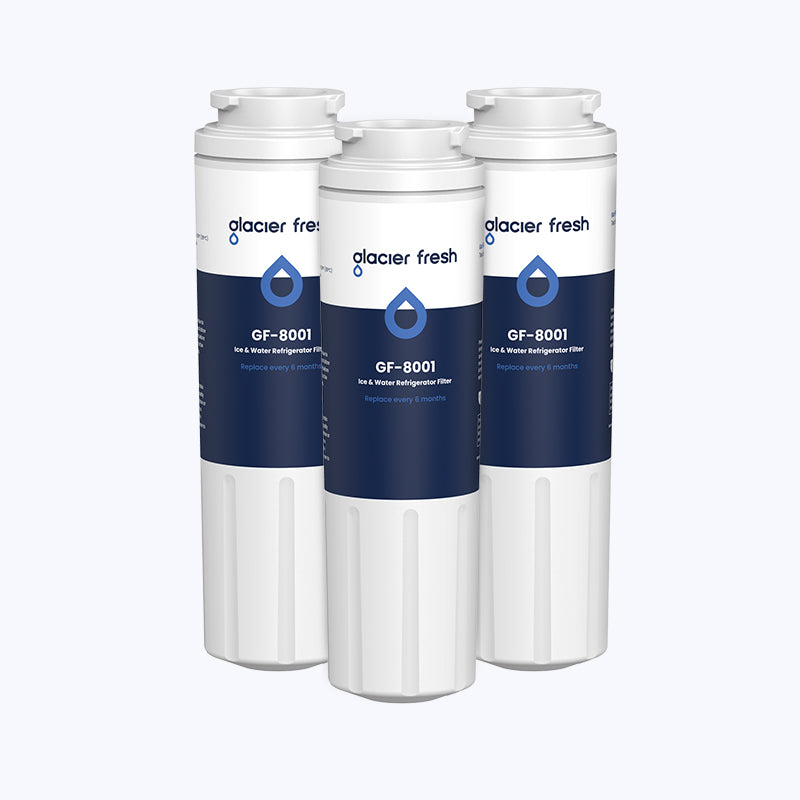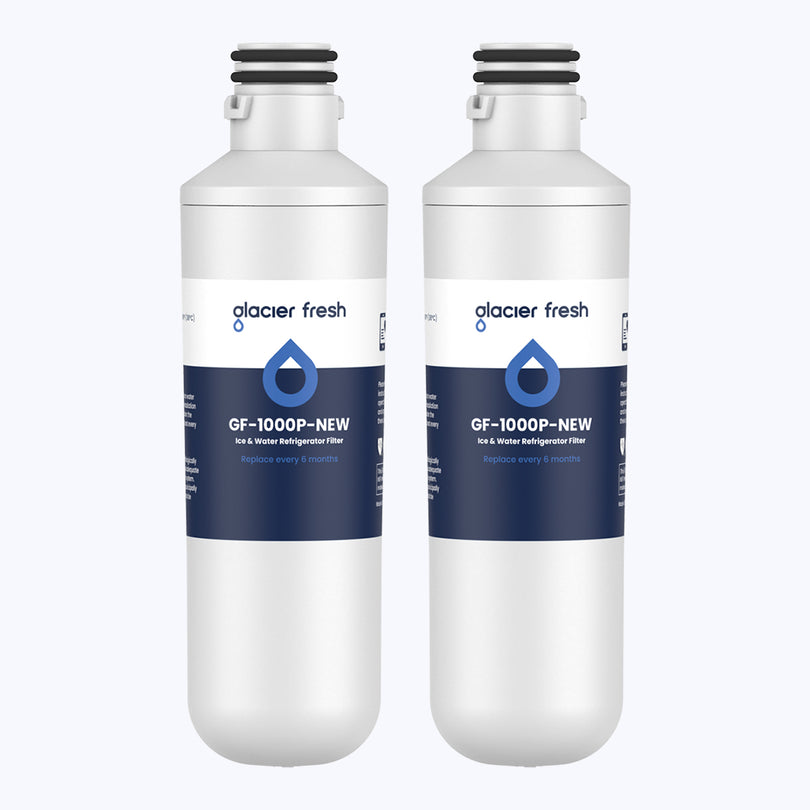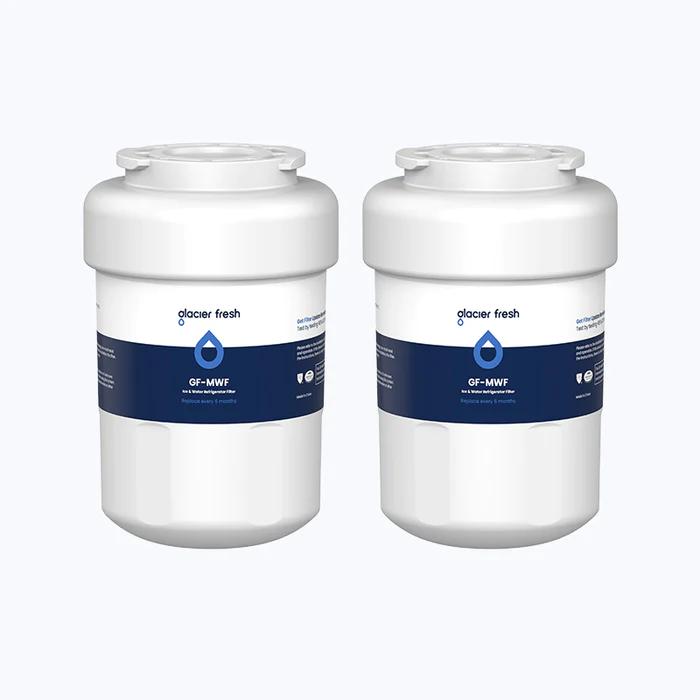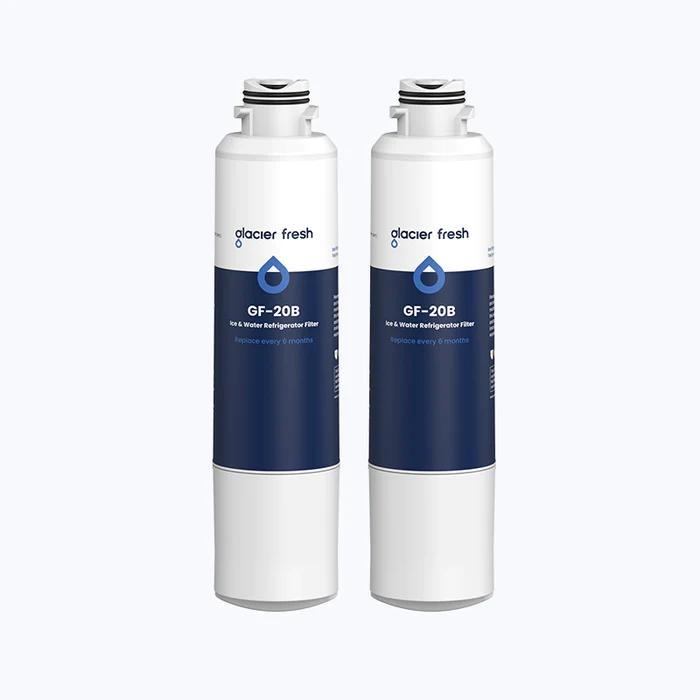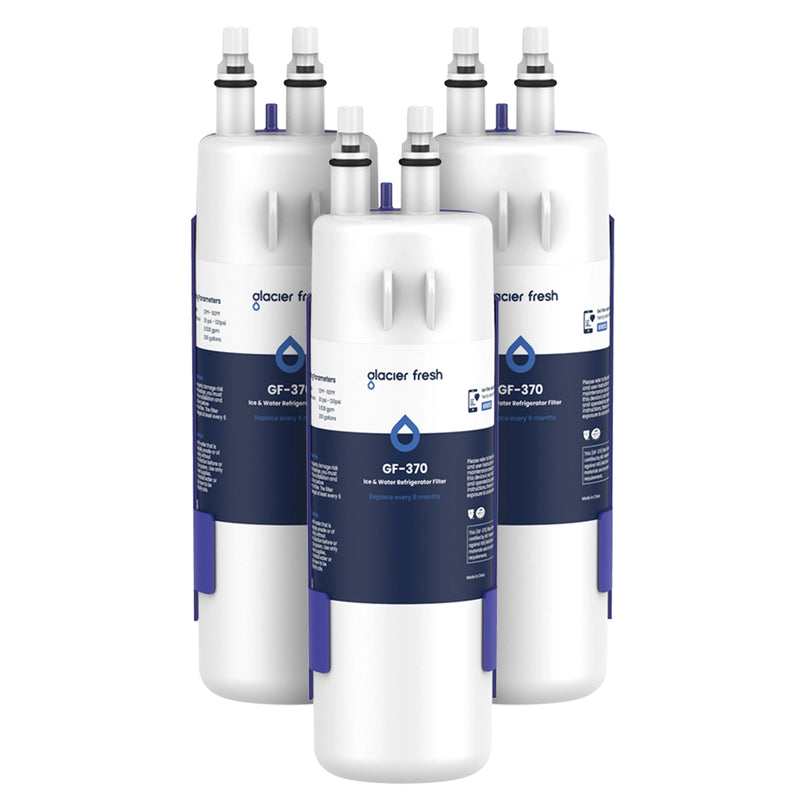Table of Contents:
What is hard water
Causes and signs of hard water
Health effects of hard water
Hard water VS soft water
Solutions to improve hard water
Conclusion
Hard water is a common issue in many homes. It's water that has a high concentration of minerals, such as calcium and magnesium. This can negatively impact your plumbing, appliances, and even your skin and hair. Fortunately, there are ways to treat and improve hard water. In this article, we'll discuss what hard water is, the common symptoms of it, and how you can test for it. We'll also cover the different methods for treating hard water and how to take long-term steps to ensure your water remains soft and safe.
What is hard water?
You may have heard of it, but do you know what it is? Hard water is a type of water that contains higher levels of minerals like calcium and magnesium. These naturally occurring minerals are found in many water sources, including streams, rivers, lakes, and wells. Hard water can cause problems in your home, such as leaving mineral deposits on dishes and glasses, making it difficult to get them clean. It can also reduce the effectiveness of soaps and detergents and leave a film on your shower walls and tub. Due to the buildup of these minerals, hard water can also damage plumbing fixtures over time. In some areas, hard water may even have a bad taste or smell.
Causes and signs of hard water
Hard water is a common problem in many households across the US. It is caused by the high mineral content found in water, particularly calcium and magnesium ions. When water flows through the ground, it picks up these minerals and dissolves them, resulting in hard water.

One of the most common signs of hard water is spotting on dishes and glassware after washing them. This is caused by the minerals in the water forming a buildup on these surfaces. Additionally, soap scum on shower walls and bathtubs is a telltale sign of hard water. When hard water mixes with soap, it creates a sticky residue that is hard to remove. Dry skin and hair are also common issues associated with hard water. Iron and sulfur are other minerals and dissolved compounds that can contribute to water hardness. The degree of hardness in water is measured in grains per gallon (GPG) or parts per million (PPM) of total dissolved solids (TDS). Experts consider water containing more than 1 GPG or 17.1 PPM of TDS complex.
The level of water hardness varies depending on the location. Areas with high soil characteristics and mineral content, such as the Midwest and parts of the Southwest, are susceptible to hard water. Water testing is the most efficient way to determine your home's water hardness level. A water testing kit can be purchased from your local hardware store, or you can have a water sample tested professionally. Knowing your water hardness level can help you take steps to improve the quality of your water. Overall, hard water can be a nuisance, but it is a common water issue that can be addressed. Understanding the causes and signs of hard water can help you take measures to mitigate its impact on your daily life.
Health effects of hard water

While it does not pose significant health risks, prolonged exposure to hard water can lead to minor skin and hair issues, such as dryness, itching, and dandruff. The high levels of minerals in hard water can cause deposits on the skin and scalp, resulting in irritation and dryness. Moreover, hard water can make it difficult for soap and shampoo to lather, leading to residue buildup and even more skin irritation.
For those with sensitive skin or eczema, the effects of hard water can be even more pronounced. It is recommended that people who suffer from these conditions install a shower filter to minimize the impact of hard water or use hair and skin care products specifically designed to combat dryness. And It is recommended that individuals who experience skin irritation or an itchy scalp switch to softer water. You can test the mineral content of your water by purchasing a water testing kit or by collecting a small sample of water in a container and sending it to a laboratory for analysis.
Hard water VS soft water
Mineral content
One significant factor that differentiates water is its mineral content. Hard water is water that contains a high amount of minerals such as calcium and magnesium. These minerals are picked up when water passes through rocks and soil. Although hard water is not harmful to our health, it can cause numerous problems in our homes. One of the most noticeable characteristics of hard water is its tendency to leave mineral deposits on surfaces it touches. This mineral buildup can range from a light film to a thick crust and can be challenging to remove. Over time, if left untreated, this buildup can damage plumbing and household appliances, leading to costly repairs and maintenance.
On the other hand, soft water has partially removed some of the minerals, such as calcium and magnesium, resulting in lower mineral content. Soft water is preferred for its taste, lather ability, and overall performance. It's also easier on household appliances and plumbing, making it a more efficient household water supply.
Taste and lather ability
Regarding taste, hard water has a distinctly metallic flavor noticeable in drinking water, cooking water, and mixed drinks. The mineral content of the water influences this taste and is not always preferred by everyone. Soft water, on the other hand, has a more neutral taste due to its lower mineral content. Soft water is often preferred in cooking and making mixed drinks because it enhances flavors and aromas. In addition to taste, lather ability is essential when evaluating water quality. Hard water can make lathering soap and detergent more complex, forming soap scum and mineral buildup. Soft water, however, lathers easily and is better suited for cleaning activities such as dishes and laundry.
Health benefits and risks
While both hard and soft water can have their benefits, they also have associated health risks. Hard water's mineral content can offer essential minerals like calcium and magnesium, which are suitable for the body. However, high contaminants like lead in hard water can cause long-term health issues, especially for pregnant women and children. Soft water's higher sodium content can pose health risks for those with sodium restrictions. Excess sodium intake can cause high blood pressure, which increases the risk of heart disease and stroke. The ion-exchange process used to remove minerals from soft water can also remove beneficial minerals like calcium and magnesium.
Plumbing maintenance
Plumbing maintenance is essential to ensuring the longevity and optimal performance of your household appliances. One common issue that homeowners face is hard water, which contains high levels of minerals such as calcium and magnesium ions. This can cause mineral buildup in your appliances, pipes, and fixtures, leading to clogging and corrosion over time. To address plumbing maintenance due to hard water issues, follow the steps below:
Cost considerations
One option for improving hard water is to invest in specialized equipment, such as a water softener. These systems work by removing the minerals from the water through ion exchange. While they can effectively improve the quality of your water, these systems come with a significant upfront cost. Depending on the size and complexity of the system, the cost can range from a few hundred to several thousand dollars.
Even after installing specialized equipment, soft water costs can continue to add up. Soft water can cause soap to lather more efficiently, leading to increased use of soaps and detergents. This can result in additional expenses for laundry detergent and other cleaning products. However, in the long run, soft water can help to reduce the cost of descaling agents and other maintenance products since it helps to prevent scale buildup and other issues that can damage appliances and plumbing fixtures over time. Another factor to consider when it comes to cost is regular maintenance and cleaning of your water filtration systems and other equipment. While soft water may require less cleaning than hard water, it's still important to regularly maintain these systems to ensure they function correctly and last for years.
Solutions to improve hard water
Hard water can lead to various issues, such as dry skin, soap scum buildup, and mineral deposits in water heaters and pipes. Fortunately, several solutions are available to improve the quality of hard water and minimize its adverse effects.
Installing a water softener

A water softener uses ion exchange to remove hardness-causing minerals like calcium and magnesium from your water. The softener's resin tank contains highly charged resin beads that attract and hold these minerals, replacing them with sodium ions. This process effectively "softens" the water, preventing the buildup of mineral deposits on household surfaces and appliances.
Several water softeners are available, ranging from whole-house systems to minor faucet or under-sink softeners designed for more targeted use. Whole-house systems are the most common and are generally installed near your home's main water supply. These systems will treat all the water coming into your home, providing complete protection against the adverse effects of hard water. While water softeners can provide several benefits, they have some potential downsides, such as increased sodium content. Because the ion exchange process involves replacing calcium and magnesium with sodium, the softened water can have a higher salt content. This can be an issue
Using special soaps and detergents

Compared to regular soap and detergent, unique soaps and detergents contain ingredients that counteract the effects of hard water and help produce better lather and cleaning power. They use chelating agents, such as citric acid or EDTA, to bind with the calcium and magnesium ions in the water, preventing them from interfering with the cleaning process. Using unique soaps and detergents can prevent the buildup of hard water residue and scum, resulting in cleaner surfaces. They are handy for cleaning laundry, dishes, and even your body. You can also use them to descale water appliances, such as coffee makers and steam irons.
Adding a water filtration system
Installing a water filtration system is an effective solution to combat hard water. A water filtration system can remove minerals and other impurities to improve quality, taste, and safety. Several types of water filtration systems are available in the market, including reverse osmosis, activated carbon, and ceramic filters. Reverse osmosis is a process in which the water is forced through a semi-permeable membrane to remove impurities and particles, including minerals and bacteria. Activated carbon filters use a charcoal filter to trap pollutants in the water, including chlorine, sediment, and volatile organic compounds. Ceramic filters are another option that uses a porous filter to remove particles and impurities in the water.

When selecting a water filtration system, it's essential to consider the level of mineral content in your water and the capacity of the filtration unit. You can test your water using a water testing kit or submit a water sample to a laboratory for analysis. Additionally, consider the size and space available for the filtration unit and the maintenance required for each type of filter.
Acid neutralizing systems
Acid-neutralizing systems work by neutralizing minerals like calcium and magnesium in water. These systems use special media, such as calcite or Corosex, which help increase the water's pH level and reduce its hardness. When hard water passes through an acid-neutralizing system, the minerals are dissolved, preventing them from forming deposits on plumbing and appliances. The neutralization process can also prevent plumbing damage associated with hard water and reduce surface mineral buildup.
There are two main types of acid-neutralizing systems available: calcite and Corosex. Calcite is a natural mineral that dissolves easily in water and works by increasing the pH level of moisture. Corosex, on the other hand, is a blend of magnesium oxide and magnesium hydroxide, which reacts to raise the pH level of water. Both types of acid-neutralizing systems are effective at reducing the effects of hard water and improving its quality.
The benefits of acid-neutralizing systems are numerous. They can help prevent plumbing damage associated with hard water, reduce mineral buildup, and make cleaning easier. Acid-neutralizing systems can be installed on the main water supply line or as a point-of-use system. They require little maintenance and can be easily replaced when needed.
Regular maintenance and cleaning
Regular maintenance is one of the best ways to prevent sediment and limescale from building up in water heaters, appliances, and pipes. Hard water can cause a buildup of mineral deposits within water heaters which can cause the heater to work harder and less efficiently. The longer the advertisement continues, the more damage it can cause, ultimately leading to decreased energy efficiency, higher utility costs, and even a shorter water heater lifespan. Therefore, yearly maintenance is recommended to ensure your water heater functions optimally.
Proper cleaning is another essential aspect of maintaining an organized and healthy home. A buildup of minerals with hard water can cause appliances such as dishwashers and washing machines to clean less effectively. To keep appliances working correctly, it's essential to use specialized cleaners that help to combat hard water buildup. One example is a detergent booster such as Lemi Shine Dish Detergent Booster, which helps to break down hard water stains and ensures that all dishes are thoroughly cleaned. Similarly, when doing laundry, adding Borax to a load can help combat hard water by softening it. Borax naturally softens hard water and restores its ability to create a good lather with soap. By using Borax when washing laundry, you can reduce the buildup of minerals in the fabric, which can help prolong the life of your clothes.
Conclusion
Generally, hard water can cause many problems, including mineral buildup, soap scum, and scale buildup in appliances, pipes, and fixtures. However, this issue can be resolved by installing a water softener, using salt-free water conditioners, or regularly using citric acid and other cleaning products. Taking action to address hard water can improve the quality of water for drinking and bathing and lead to cost savings in the long run by reducing the need for repairs or replacements of appliances and pipes. Additionally, it can improve the longevity of water heaters and other devices by reducing the strain of mineral deposits. Overall, don't let hard water become a daily headache. Explore your options and take action to improve the quality of your water for a healthier and more efficient home.

